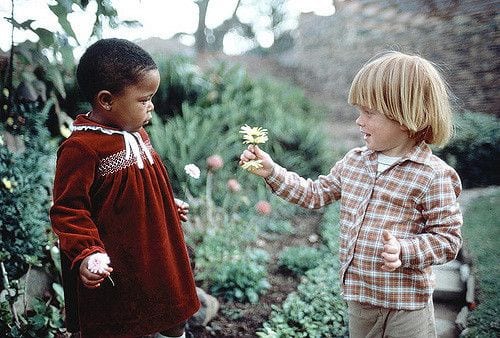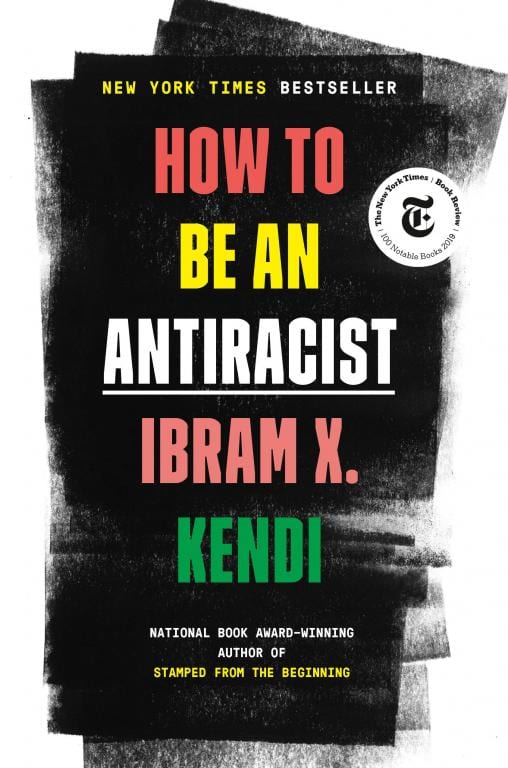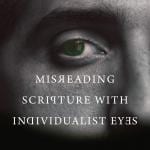This is my second post responding to Owen Strachan’s sweeping criticism of “wokeness.” In the previous post, I began to argue that he presents the most negative of caricatures when describing the so-called “woke.” As a result, he perpetuates social divisions and subtle assumptions that undermine progress in racial reconciliation.
 Today, I want to elaborate further in order to highlight ways that Strachan unwittingly misleads his audience. I suggest that we need to approach the subject with a far more generous spirit.
Today, I want to elaborate further in order to highlight ways that Strachan unwittingly misleads his audience. I suggest that we need to approach the subject with a far more generous spirit.
Colorblindness is Not the Goal?
Strachan misrepresents the sentiment of numerous writers, so many of whom I’ve read and heard myself. He says about “woke” people:
“Colorblindness is not at all the goal, a society where children are judged by their character, … a society where children are judged by their character, not their skin color, which is probably [Martin Luther King’s] most famous quote, that’s not the goal either. It’s not the goal at all. It’s not to celebrate diversity. It’s not to enjoy common humanity. Again… not the goal in critical race theory.”
This entire paragraph grossly distorts a multitude of “woke” authors who speak about colorblindness.
Is it true that colorblindness is not the goal of these writers? In part, yes, but we have to consider what they mean in context. They do not reject colorblindness as if they want their children to be judged by their skin color. Quite the opposite. They expressly want to cast aside stereotypes about skin color that fuels prejudice and marginalization.
Rather, warnings against “colorblind racism” speak to a different issue. Such authors want to raise awareness that our skin color, ethnicity, and background shape both who we are and the way people treat us.
This explains the quote from Ibram X. Kendi, about which Strachan laments. Kendi says,
“the most threatening racist movement is not the alt-right’s unlikely drive for a white ethnostate but the regular American’s drive for a race-neutral one.”
This comment utterly confounds Strachan. But we must interpret people generously and in context.

I’ve read and listened to much of Kendi. His (and others’) contention is that, in contemporary America, race is not a “neutral” topic. Our minds in fact are not colorblind. The average American inherits certain assumptions and stereotypes from the broader culture. One of these assumptions concerns what is “normal.” In practice, “whiteness” is equated with “normal.” To remain “neutral” is an unwitting assertion of whiteness (i.e., white culture) as the prevailing arbiter of normalcy.
The common white misreading of “colorblindness” or neutrality subtly leads people to ignore injustice and its effects, which still affect society today. It functions as a call to cultural assimilation into white culture. I could go on, but I think you get the point.
I am reminded of the popular show This Is Us, where a white father, Jack, has an adopted black son named Randall. In one episode, Jack tells Randall that he doesn’t see color; he just sees his son. In response, Randall says, “Then you don’t see me.” His point is this: Especially as a black person in America, you cannot separate who you are from your lived experience. That experience informs who you are. It shapes who you are.

A part of what is common to our humanity is that we each have diverse backgrounds and experiences. Is this really something that we as Christians would condemn? When we critique movements or even ideologies, we need to maintain a spirit of generosity. We need to address the underlying concerns they wish to address.
A lack of generosity is a rot to evangelicalism.
The Real Target of Strachan’s Attack
In that spirit, let me say what I affirm about Strachan’s remarks.
In his talks and in a follow-up blog post, he distinguishes four types of people: the non-woke, those confused about wokeness, the “engaged and yet cautious pro-woke,” and the “convinced and committed pro-woke.” He includes himself among the non-woke and considers the third group on “a path that leads only to compromise.”
The fourth group includes the most extreme people, like Ashley Shackleford. These are people who seem to embrace Critical Race Theory (CRT) as a whole, as an all-encompassing worldview, and thus believe contrary to a biblically faithful, Christian worldview. Neil Shenvi has done an excellent job warning against CRT as a grand narrative or overall worldview, which is reductionistic and antithetical to Scripture.
To the degree that Strachan seeks to combat the latter, then he does well. But that is not what he communicates. His words are sweeping in their dismissal.
In fact, his exhortation to excommunicate those who espouse wokeness, CRT, etc. might be a type of strawman argument. A “strawman argument” attacks a view or argument that differs from the actual position of his opponent. In Strachan’s case, he levels his attack against the fourth group but then speaks as though these people were filling the pews of evangelical churches.
In reality, most churchgoers who reckon themselves “woke” would fit in Strachan’s third category and would affirm Eric Mason’s definition of wokeness as someone who is
“socially aware of issues that have systemic impact… [wokeness] has to do with seeing all of the issues and being able to connect the cultural, socio-economic, philosophical, historical, and ethical dots.”
Strachan’s seemingly indiscriminate (though “cavalier” might be a better word) assault on “wokeness is a war on Christian love” (to borrow from Michael Bird).
Those who accept CRT wholesale, who truly adopt the Marxist perspective that Strachan fears, are not the people waving around their “evangelical cards.” (If you are reading this and are not an evangelical, no, we don’t actually have cards.)
What about Critical Race Theory?
Should we not be concerned by CRT? Isn’t Strachan right to sound the alarm?
I give a qualified “yes.” Why? It’s the same qualification that I’d offer a young child who wants to stand by the fire. “Yes, you can do that, but don’t burn yourself.”
In other words, there are many good insights to be gained from CRT. CRT reminds the church of an assortment of sins and justice issues about which we should be concerned. For example, David French says,
“As a Christian, this kind of CRT-infused analysis helps me not only understand the reason for persistent disparities, it should also build empathy and motivate action. What can we do to ameliorate the effects of this disparate power and privilege? …
By God’s grace, critical race theory has on occasion helped me to identify the reality and effects of oppression and motivated me to follow the dictates of Micah 6:8 and “seek justice.” But we cannot lose sight of the fact that it’s ultimately Christ who ushers in the new creation—by elevating us beyond a broken world’s framing of black and white and into the kingdom reality that there is but one identity that truly matters, child of the living God.”
For his incredibly balanced and helpful article, click here.
In truth, wokeness has become evangelicals chimera, a monstrous creature from Greek mythology that is feared by many. But that’s precisely the thing. Much of the picture Strachan paints is mythical. The average “woke” person in the church is nothing like the people he describes in his talks, nor will they ever be.
Do Christians sometimes adopt unbiblical notions from CRT uncritically? Of course. That is true for any perspective, ideology, or even theology. How many people have accepted the saving hope of capitalism or Calvinism uncritically? Who many have embraced the harmful aspects of individualism without a second thought? Should I then expect Strachan to write articles soon lambasting the free market, reformed theology, and individualism? I’m not holding my breath.
In conclusion, let us remember the words of Paul in 1 Thessalonians 5:5-6,
For you are all children of light, children of the day. We are not of the night or of the darkness. So then let us not sleep, as others do, but let us keep awake and be sober.
Likewise, in Ephesians 5:11-14, Paul says,
Take no part in the unfruitful works of darkness, but instead expose them. For it is shameful even to speak of the things that they do in secret. But when anything is exposed by the light, it becomes visible, for anything that becomes visible is light. Therefore it says, “Awake, O sleeper, and arise from the dead, and Christ will shine on you.”
In other words, get woke.
For my first post, click here.
Cover: United Nations Photo, “Apartheid: The Tyranny of Racism Made Law,” January 1, 1982. Via Flickr. Licensed under Creative Commons CC BY-NC-ND 2.0.













